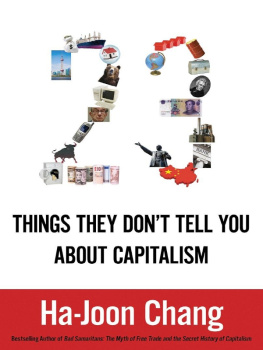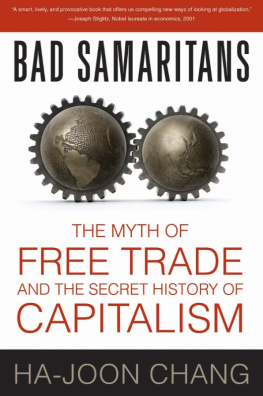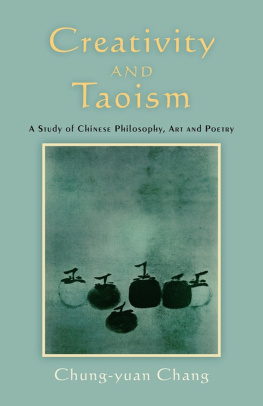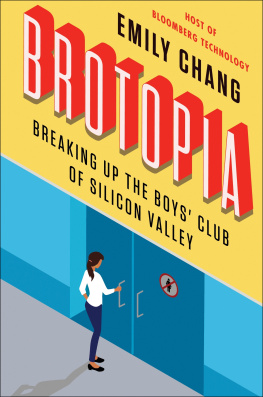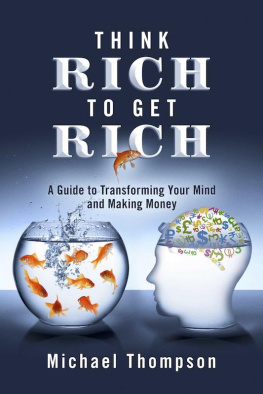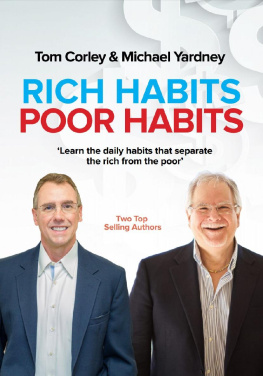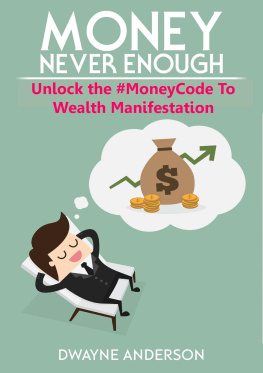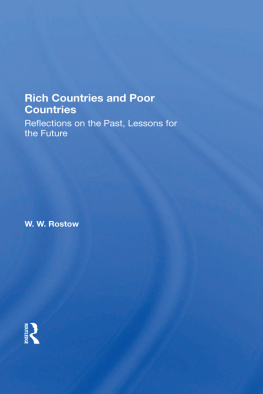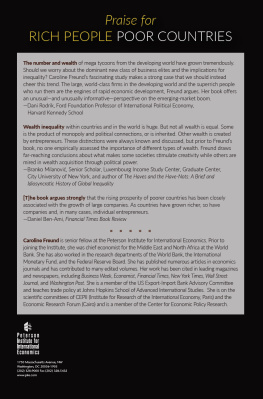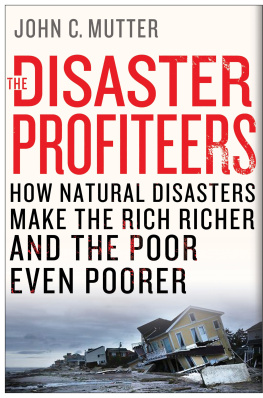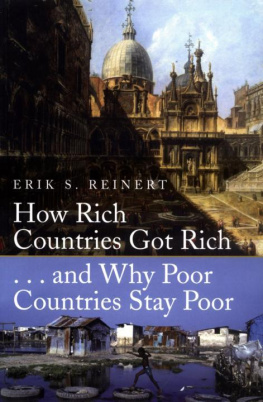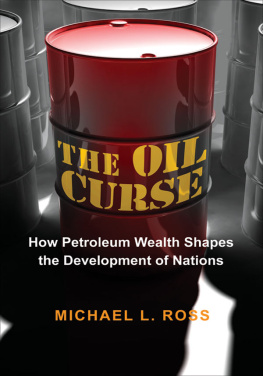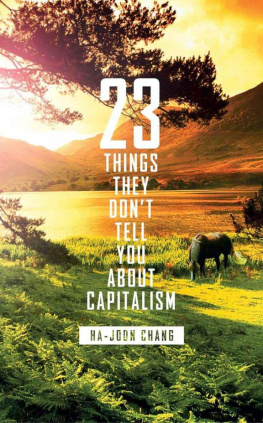
23 Things They
Dont Tell You
about Capitalism
HA-JOON CHANG

To Hee-Jeong, Yuna, and Jin-Gyu
7 Ways to Read 23 Things They Dont
Tell You about Capitalism
Way 1. If you are not even sure what capitalism is, read:
Things 1, 2, 5, 8, 13, 16, 19, 20, and 22
Way 2. If you think politics is a waste of time, read:
Things 1, 5, 7, 12, 16, 18, 19, 21, and 23
Way 3. If you have been wondering why your life doesnot seem to get better despite ever-rising income andever-advancing technologies, read:
Things 2, 4, 6, 8, 9, 10, 17, 18, and 22
Way 4. If you think some people are richer than othersbecause they are more capable, better educated and moreenterprising, read:
Things 3, 10, 13, 14, 15, 16, 17, 20, and 21
Way 5. If you want to know why poor countries are poorand how they can become richer, read:
Things 3, 6, 7, 8, 9, 10, 11, 12, 15, 17, and 23
Way 6. If you think the world is an unfair place but there isnothing much you can do about it, read:
Things 1, 2, 3, 4, 5, 11, 13, 14, 15, 20, and 21
Way 7. Read the whole thing in the following order...
Contents
The global economy lies in tatters. While fiscal and monetary stimulus of unprecedented scale has prevented the financial melt-down of 2008 from turning into a total collapse of the global economy, the 2008 global crash still remains the second-largest economic crisis in history, after the Great Depression. At the time of writing (March 2010), even as some people declare the end of the recession, a sustained recovery is by no means certain. In the absence of financial reforms, loose monetary and fiscal policies have led to new financial bubbles, while the real economy is starved of money. If these bubbles burst, the global economy could fall into another (double-dip) recession. Even if the recovery is sustained, the aftermath of the crisis will be felt for years. It may be several years before the corporate and the household sectors rebuild their balance sheets. The huge budget deficits created by the crisis will force governments to reduce public investments and welfare entitlements significantly, negatively affecting economic growth, poverty and social stability possibly for decades. Some of those who lost their jobs and houses during the crisis may never join the economic mainstream again. These are frightening prospects.
This catastrophe has ultimately been created by the free-market ideology that has ruled the world since the 1980s. We have been told that, if left alone, markets will produce the most efficient and just outcome. Efficient, because individuals know best how to utilize the resources they command, and just, because the competitive market process ensures that individuals are rewarded according to their productivity. We have been told that business should be given maximum freedom. Firms, being closest to the market, know what is best for their businesses. If we let them do what they want, wealth creation will be maximized, benefiting the rest of society as well. We were told that government intervention in the markets would only reduce their efficiency. Government intervention is often designed to limit the very scope of wealth creation for misguided egalitarian reasons. Even when it is not, governments cannot improve on market outcomes, as they have neither the necessary information nor the incentives to make good business decisions. In sum, we were told to put all our trust in the market and get out of its way.
Following this advice, most countries have introduced free-market policies over the last three decades privatization of state-owned industrial and financial firms, deregulation of finance and industry, liberalization of international trade and investment, and reduction in income taxes and welfare payments. These policies, their advocates admitted, may temporarily create some problems, such as rising inequality, but ultimately they will make everyone better off by creating a more dynamic and wealthier society. The rising tide lifts all boats together, was the metaphor.
The result of these policies has been the polar opposite of what was promised. Forget for a moment the financial meltdown, which will scar the world for decades to come. Prior to that, and unbeknown to most people, free-market policies had resulted in slower growth, rising inequality and heightened instability in most countries. In many rich countries, these problems were masked by huge credit expansion; thus the fact that US wages had remained stagnant and working hours increased since the 1970s was conveniently fogged over by the heady brew of credit-fuelled consumer boom. The problems were bad enough in the rich countries, but they were even more serious for the developing world. Living standards in Sub-Saharan Africa have stagnated for the last three decades, while Latin America has seen its per capita growth rate fall by two-thirds during the period. There were some developing countries that grew fast (although with rapidly rising inequality) during this period, such as China and India, but these are precisely the countries that, while partially liberalizing, have refused to introduce full-blown free-market policies.
Thus, what we were told by the free-marketeers or, as they are often called, neo-liberal economists was at best only partially true and at worst plain wrong. As I will show throughout this book, the truths peddled by free-market ideologues are based on lazy assumptions and blinkered visions, if not necessarily self-serving notions. My aim in this book is to tell you some essential truths about capitalism that the free-marketeers wont.
This book is not an anti-capitalist manifesto. Being critical of free-market ideology is not the same as being against capitalism. Despite its problems and limitations, I believe that capitalism is still the best economic system that humanity has invented. My criticism is of a particular version of capitalism that has dominated the world in the last three decades, that is, free-market capitalism. This is not the only way to run capitalism, and certainly not the best, as the record of the last three decades shows. The book shows that there are ways in which capitalism should, and can, be made better.
Even though the 2008 crisis has made us seriously question the way in which our economies are run, most of us do not pursue such questions because we think that they are ones for the experts. Indeed they are at one level. The precise answers do require knowledge on many technical issues, many of them so complicated that the experts themselves disagree on them. It is then natural that most of us simply do not have the time or the necessary training to learn all the technical details before we can pronounce our judgements on the effectiveness of TARP (Troubled Asset Relief Program), the necessity of G20, the wisdom of bank nationalization or the appropriate levels of executive salaries. And when it comes to things like poverty in Africa, the workings of the World Trade Organization, or the capital adequacy rules of the Bank for International Settlements, most of us are frankly lost.
However, it is not necessary for us to understand all the technical details in order to understand what is going on in the world and exercise what I call an active economic citizenship to demand the right courses of action from those in decision-making positions. After all, we make judgements about all sorts of other issues despite lacking technical expertise. We dont need to be expert epidemiologists in order to know that there should be hygiene standards in food factories, butchers and restaurants. Making judgements about economics is no different: once you know the key principles and basic facts, you can make some robust judgements without knowing the technical details. The only prerequisite is that you are willing to remove those rose-tinted glasses that neo-liberal ideologies like you to wear every day. The glasses make the world look simple and pretty. But lift them off and stare at the clear harsh light of reality.
Next page
